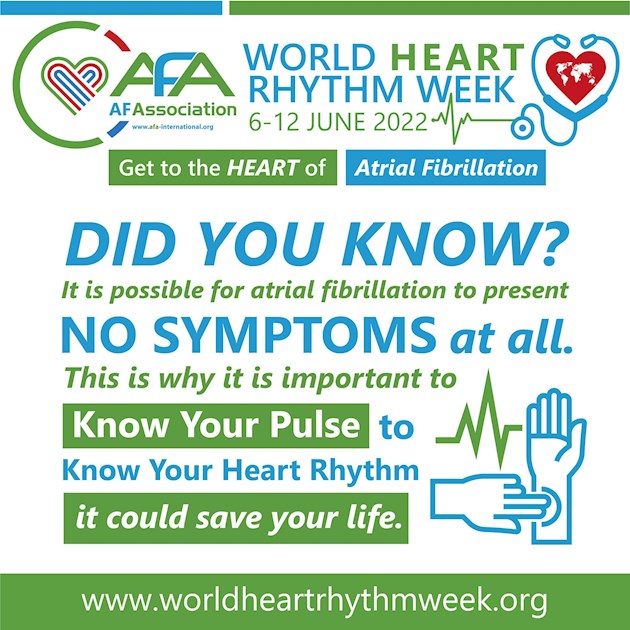It is possible for atrial fibrillation to present no symptoms at all. This is why it is important to #KnowYourPulse to Know Your Heart Rhythm - It could save your life 💚
🔗 Click the link to learn more about our Know Your Pulse Campaign: heartrhythmalliance.org/afa...

